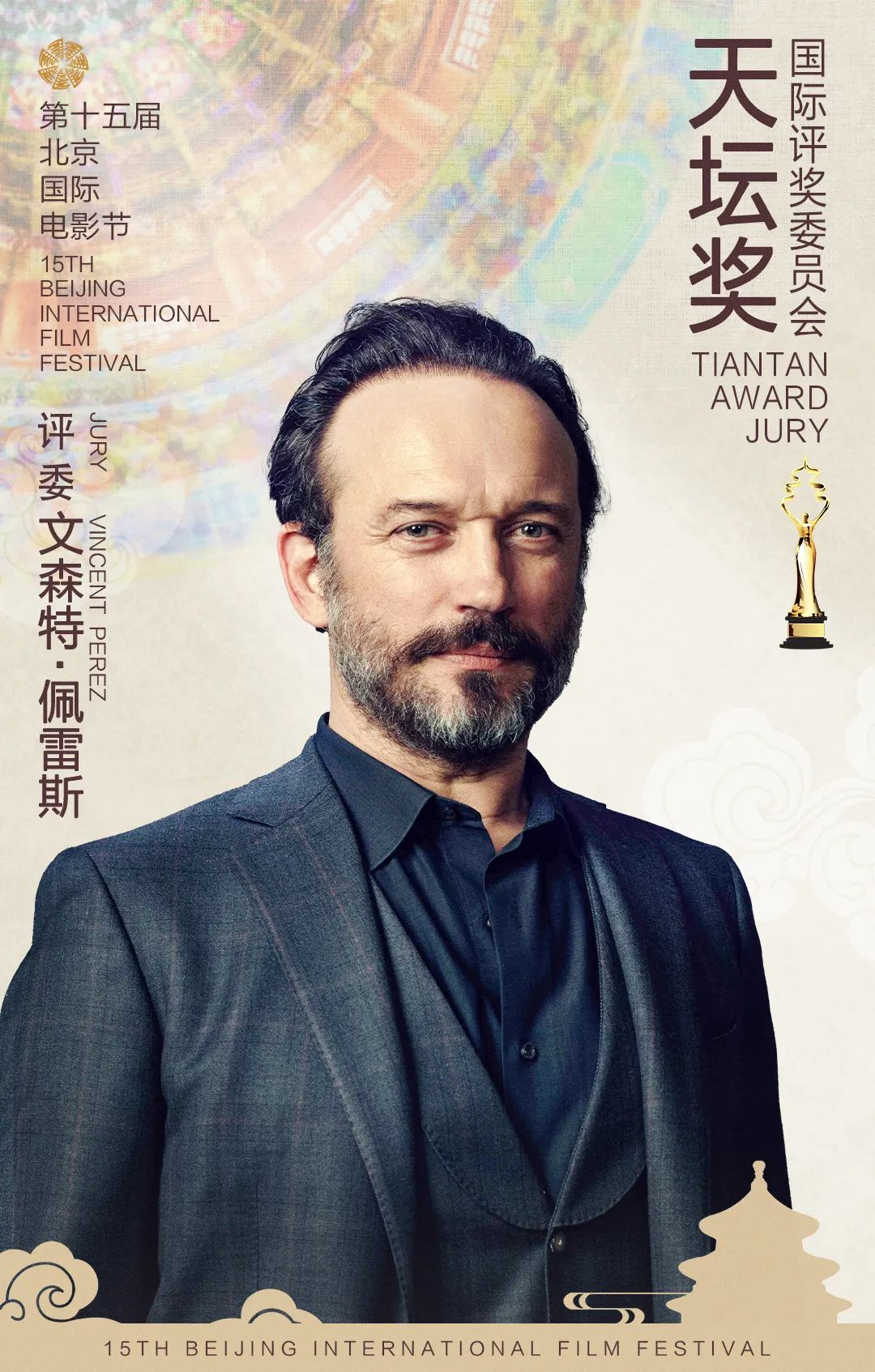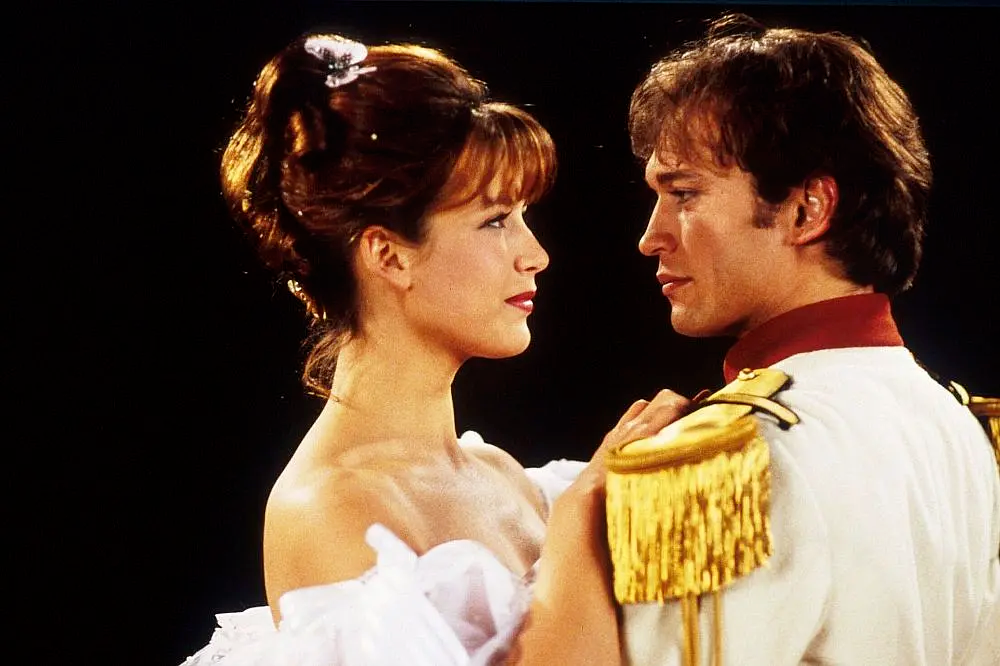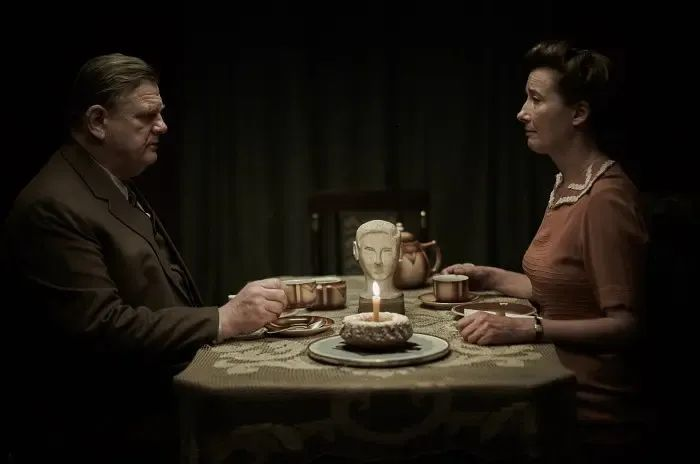Tiantan Award
Vincent Perez: A Journey Through Cinema's Many Facets
The Beijing International Film Festival Organizing Committee announced the addition of the distinguished Swiss director and actor Vincent Perez to the jury of the Competition Section, Tiantan Award of the 15th BJIFF. Through fifteen years of dedicated progress, BJIFF has consistently embraced a spirit of openness and inclusivity, gathering global film luminaries and offering film enthusiasts a profound engagement on cinematic art through its professional and diverse jury lineup.

The 15th Beijing International Film Festival “Tiantan Award”
Vincent Perez, Member of the International Jury
Vincent Perez has graced the international cinematic stage since the 1980s, establishing himself as an emblematic visage of European arthouse cinema through his profound performance style and nuanced command of complex roles. In 1990, he rose to prominence starring in Cyrano de Bergerac; his portrayal of Christian, marked by subtle emotional intensity, became an embodiment of French Neo-Romantic cinema. The film's selection for the Competition section at the 43rd Cannes Film Festival, where it garnered the Technical Grand Prize, cemented his cinematic standing. His collaboration with Sophie Marceau in Fanfan in 1993 further burnished his international renown. Within this film, the celebrated “mirror kiss” sequence is revered by cinephiles as a quintessential romantic classic. Director Alexandre Jardin’s pioneering use of mirrored divisions within the frame resonated powerfully with Perez's charged performance, elevating the work to totemic status within the landscape of 1990s French romance cinema.

A still from Fanfan
His success as a performer did not confine his creative horizons. Following his transition to directing, Perez's works, characterized by nuanced cinematography and literary narratives, revealed his profound contemplation of humanity and time.
In 2016, his film Alone in Berlin earned a Golden Bear nomination in the Competition Section at the 66th Berlin International Film Festival. Within the film, he reconstructs 1940s Berlin through stark black-and-white cinematography, rendering the camera a spiritual stethoscope probing the zeitgeist of 1930s Berlin. As Anna, portrayed by Emma Thompson, types anti-Nazi leaflets on her typewriter, Perez eschews grand narratives, instead employing close-ups that focus on the spastic tremor of her finger joints. This allows the percussive strike of the typewriter keys and the vibration of railway tracks to form an audiovisual counterpoint, elevating the microdynamics of an awakening individual conscience into a metaphorical spring thunderclap beneath the era's frozen surface.

A still from Alone in Berlin
This creative philosophy of “observing historical violence as if through a microscope” evolved into a keener philosophical inquiry in The Edge of the Blade (2023). Through the cold gleam of sabers on the dueling grounds of late 19th-century Paris, Perez anthropologically deconstructs the discourse of “honor”, allowing female characters to pierce through male-dominated ritualized violence with their swords, stripping away the calloused layers of social conditioning to reveal inherent human nature. In his transition from actor to director, Perez consistently maintains an almost anthropological gaze - whether in the burning passion before the lens or the restrained orchestration behind it, his work serves as an interrogation into the essence of existence.
In 2025, Perez returns to his role as an actor in Hot Milk, which was selected for the Competition Section at the 75th Berlin International Film Festival. In a scene set amidst library ruins, he delivers a performance of exquisite brilliance within a fixed shot lasting over two minutes, transforming the literary metaphor of “hot milk as both poison and cure” into a potent visual manifestation. This microscopic control in performance mirrors the scalpel-like precision of his directorial camerawork. Whether on screen or off, he remains the calmest observer within the laboratory of human nature.
As a director, Vincent Perez excels at conveying emotional tension through visual metaphors; as an actor, he shapes the souls of his characters through gaze and physicality. Over thirty-five years, he has achieved an ascending spiral in his artistic journey. The dual identities of actor and director are not disparate labels for him, but rather different facets of a single prism; when light passes through, it refracts an unending exploration into human nature. Now, this artist, embodying both Swiss precision and French romanticism, in his capacity as a juror for the Tiantan Award, infuses his manifold gaze into the multifaceted dimensions of cinema.
